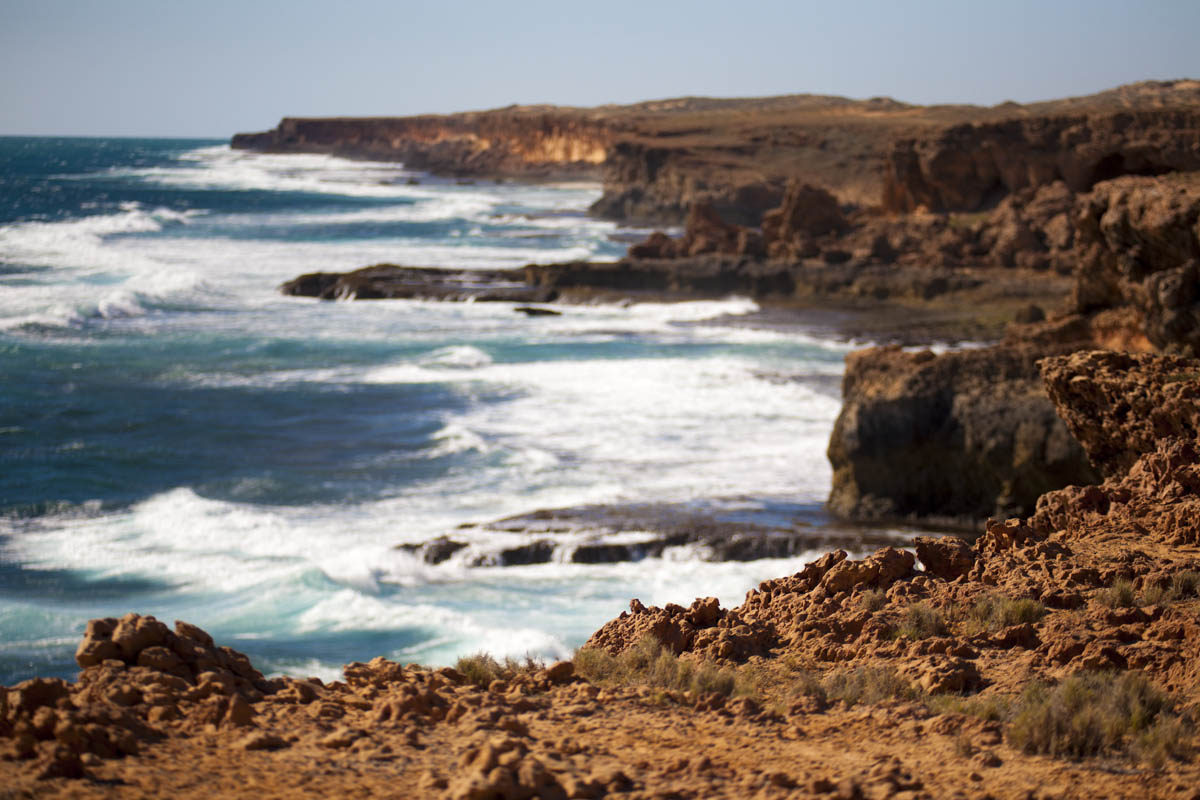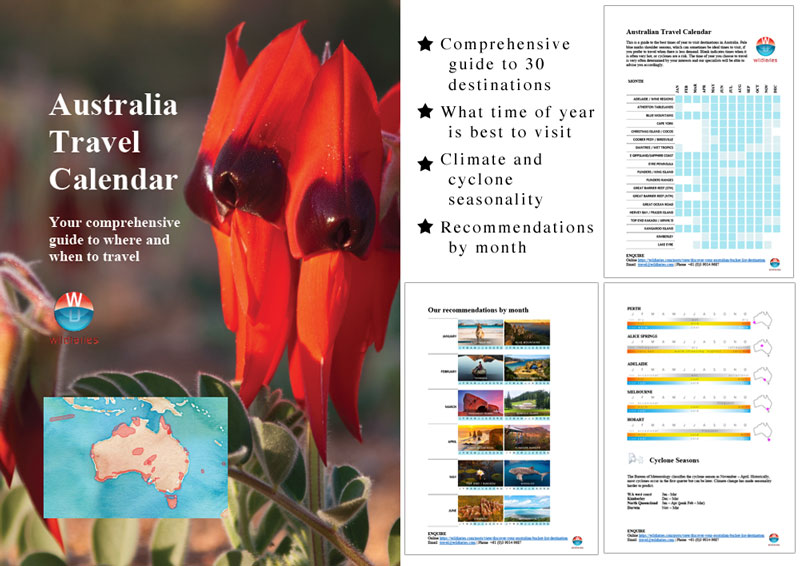
Quobba
As we sit with a beer and watch the waves roll in at sunset on Quobba Station. Except for a horizon, we're staring at an ocean unbroken for 6,500km, all the way to Port Dauphin, Madagascar.
At night here, the ocean thunders. Perched on the dunes, our beach shack seems to shake with each crashing wave. Just a few hundred metres away is the monument to sailors tragically lost when the HMAS Sydney was sunk in controversial circumstances by a German ship in 1941. Dotted along the cliffs are other monuments to fishermen lost from the cliffs in more recent years.
Tim and Sara own the sheep station, managing 80km of coastline. Tim says "every year or so, I get the brass plates redone, with the names of the latest fishermen to die here". Fishing from the cliffs is a precarious business, with the occasional rogue wave pitching in and swallowing anything stood on its edge - despite the many official warnings.
It's mesmerising, standing there watching the sea. The day we arrive, an offshore weather system has swollen the ocean. Metres offshore, it drops to 100m deep, an alley for predatory sharks, tuna and dolphins. The relentless, heavy rolling waves heap up as they are stopped in their tracks, colliding with the shallow beach shelf. Tim recalls one spectacular day when the sea was so ferocious, the waves were breaking over the top of the cliffs, sweeping across the road, throwing tentacles of foamy water and spray inland.
As if to further remind us of the physical connection between land and sea, the surface of Quobba has been slowly lifted, exposing an ancient seabed. Rocks strewn along the roadside by graders are full of fossilised shells. The sea and the wind have sculpted every boulder and stone into a labyrinth of hidey-holes for wildlife.
This dry, windswept land is surprisingly rich. Red Kangaroos are abundant in the paddocks surrounding the windmills, at night big-eyed velvet geckos come out to feed on moths and Thorny Devils on ants at sunrise.
There is something spectacular about west coasts. The Atlantic surges against west Scotland and smashes into Cape Town, and the Pacific pummels Alaska. Australia's west coast succumbs to the power of the Indian Ocean and it's this untameable energy and ferocity that makes this places so awe-inspiring.


